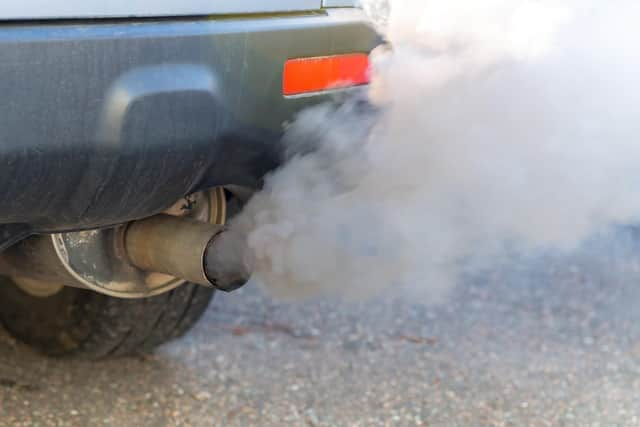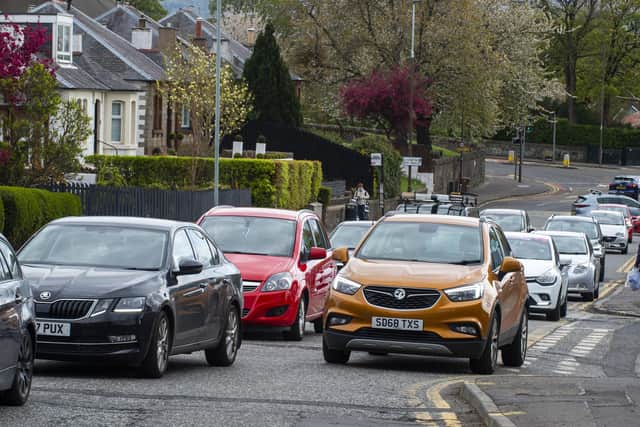Edinburgh second worst among leading European cities for air pollution improvements – campaigners Clean Cities
The Scottish capital was also ranked second bottom for traffic congestion, the study for the Clean Cities campaign found.
Glasgow was not featured among the “broad sweep” of cities with “international significance” chosen for the investigation, but Friends of the Earth Scotland (FoES) said it hoped Scotland’s largest city would be included in future versions.
Advertisement
Hide AdAdvertisement
Hide AdEdinburgh was placed 31st overall over a range of yardsticks that also included pedestrian and cyclist safety and public transport, which were measured in 2017-19 before the Covid pandemic.


Oslo came top, followed by Amsterdam, Helsinki, Copenhagen and Paris.
All the cities faring worse than Edinburgh were in Italy and Poland: Rome, the Tri-city conurbation of Gdansk, Sopot & Gdynia, Warsaw, Krakow and Naples.
Only Tri-city was worse for air quality improvements.
The report, compiled by consultants Ricardo Energy & Environment, comes three months before a low emission zone is due to be introduced in Edinburgh city centre in May.


Only vehicles with the cleanest available engines will be permitted, although enforcement is not due to start until June 2024 after a two-year grace period.
FoES transport campaigner Gavin Thomson said: “This embarrassing ranking shows how badly a low emission zone is needed in Edinburgh.
"The air pollution from transport puts the health of residents at risk, and was at illegal levels until the pandemic took some vehicles off the road.
“A low emission zone will restrict the most polluting vehicles from the city centre.
Advertisement
Hide AdAdvertisement
Hide Ad"This can be introduced alongside lower speed limits, cycle lanes, and larger pedestrian areas, to catch up to the rest of Europe.
“Cities across Europe - which compete with Edinburgh for investment, for tourism, for status - have moved to sustainable transport long ago.
"Edinburgh, and all Scotland’s cities, need to quickly catch up and make their cities liveable, green, healthy places.”
Oliver Lord, UK head of Clean Cities, said: "High levels of congestion and slow progress means Edinburgh falls behind most European cities in the race for zero emission mobility.
"If we want greener, healthier and prosperous cities, then the tool kit hasn’t changed - we just need action: fewer polluting cars and more space for people."
However, City of Edinburgh Council transport and environment convener Lesley Macinnes said: “Our own air quality monitoring shows an improving picture across the city, which is reflected in the city’s 11th place ‘current air quality’ ranking in this report.
“Of course, that’s not to say there isn’t a great deal of work to be done to reduce air pollution, tackle congestion and significantly improve and support access to sustainable travel in the city.
"We’re up for the challenge though, and currently have a long list of bold projects in the pipeline to overhaul transport to and around Edinburgh.
Advertisement
Hide AdAdvertisement
Hide Ad“In the coming months, we hope to gain approval to implement a low emission zone which will cut harmful emissions in the densely-populated city centre, alongside renewing our air quality action plan for consultation.”
Macinnes said the council’s target of reducing traffic by 30 per cent by 2030 was “pivotal to addressing congestion”, but “great strides” were being made towards improving other transport so that it could be achieved.
A message from the Editor:
Thank you for reading this article.
We're more reliant on your support than ever as the shift in consumer habits brought about by coronavirus impacts our advertisers.
If you haven't already, please consider supporting our trusted, fact-checked journalism by taking out a digital subscription.
Comments
Want to join the conversation? Please or to comment on this article.